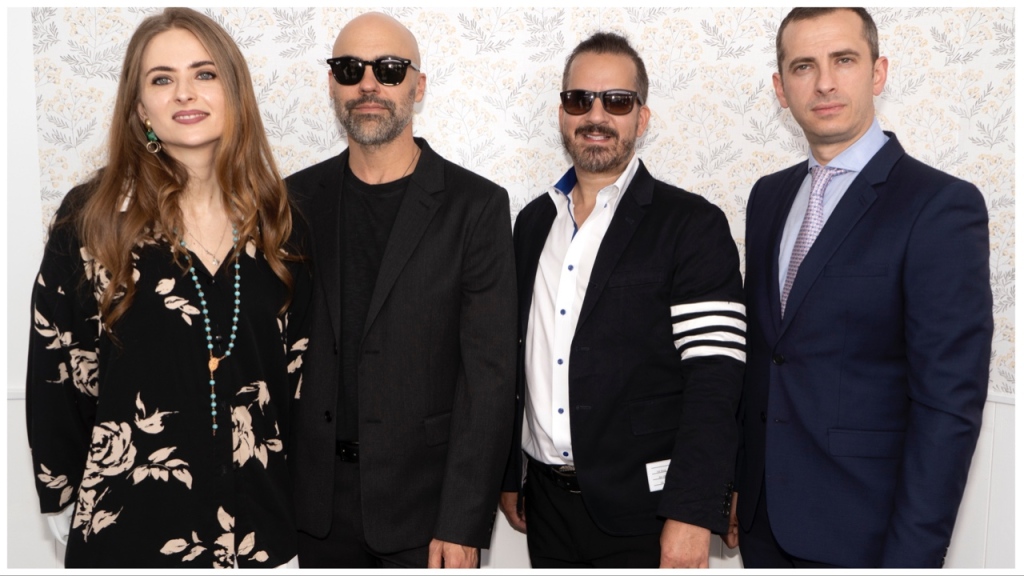
A mere week after wrapping their feature film Our House Is on Fire in Ukraine, director Alice Biletska and producers Brian Perkins, Daniel Finkelman and Oleg Saitskiy came into Cannes to talk about their very personal project and the experience of shooting a feature film in the war-torn country.
“It was pretty intense,” Biletska told an audience Saturday at the American Pavilion. “But to be honest it was more intense on the outside. The moment you go there and you start interviewing people in the bomb shelters and in the subways, you realize, ‘Oh, this is totally possible.’ Not only is it possible but it needs to be done right now because every crew member, every extra, every actor – everyone understands the importance of this being told right now in Ukraine.”
RELATED: Cannes Film Festival Full Coverage
Our House Is on Fire is a personal story for Biletska, who is the first Ukrainian graduate from the American Film Institute’s directing program. Having spent a few years in the U.S. for the program, the director returned to her native country and subsequently left just before the war started. When she arrived back in the U.S. she was compelled to return to Ukraine to shoot the film.
The project stars Anastasiya Pustovit who plays Sofia, a young Ukrainian singer trying to make it in L.A. who travels to Kyiv for the first time in five years to attend her brother’s wedding. There she faces her family and friends and falls back in love with her ex-boyfriend (played by Lyubomyr Valivots). She is about to fly back to the U.S. when war breaks out, forcing her to make an impossible choice of choosing between career and home and safety and love.
Biletska directs from a script she co-wrote with Perkins and Marysia Nikitiuk. Perkins and Biletska produce via their AB Visions banner along with Finkelman of Sparks Next and Kinolime as well as Kinolime CEO Saitskiy.
RELATED: Cinephil Boards Ukraine Doc ‘In The Rearview’ – Cannes Market
When they were developing the idea, Perkins, who has a nonprofit organisation that helps Ukrainians, said to Biletska, “I feel like we both need to go – maybe for different reasons. But I think we need to be there. It was a scary time to go there were blackouts and no electricity, there were constant bombings.”
Throughout the shoot, they had times where they were sheltering in the subway because of the bombings and Perkins confessed many meetings were done by candlelight as there had been massive blackouts in the country.
Finkelman, whose mother is from Kyiv and had been shooting in the region for some time, told delegates, “It’s very personal for me.”
“When the war broke out we were actually doing a reshoot in Slovakia and I told some of the local producers there that we were working with that we actually wanted some Ukrainian refugees to come and join the film.”
RELATED: Cannes Film Festival 2023 In Photos
He added, “When Brian told me about the film I just said, without question, ‘I’m in.’ I’m in because I see the potential here and I also recognize the talent.”
Saitskiy says he agreed and whilst he thought it would be “crazy” for them to shoot the film in Ukraine in the middle of the war, his belief in the story and the talent behind it convinced him. “At Kinolime we’re all about the story and I just can’t wait to see the finished version of this film.”
When pressed about whether or not they were fearful of being in danger throughout the shoot, Biletska said frankly, “When you go there you think, ‘if it’s going to hit, it’s going to hit.’ You do become a bit of a fatalist but I would rather die doing what I feel is needed to be done and why I need to do this than just being afraid for the rest of my life.”
Check out the panel above.













